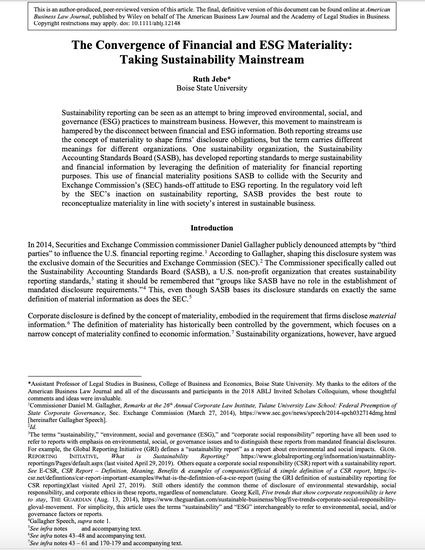
Sustainability reporting can be seen as an attempt to bring improved environmental, social, and governance (ESG) practices to mainstream business. However, this movement to mainstream is hampered by the disconnect between financial and ESG information. Both reporting streams use the concept of materiality to shape firms’ disclosure obligations, but the term carries different meanings for different organizations. One sustainability organization, the Sustainability Accounting Standards Board (SASB), has developed reporting standards to merge sustainability and financial information by leveraging the definition of materiality for financial reporting purposes. This use of financial materiality positions the SASB to collide with the Security and Exchange Commission's (SEC) hands‐off attitude to ESG reporting. In the regulatory void left by the SEC's inaction on sustainability reporting, the SASB provides the best route to reconceptualize materiality in line with society's interest in sustainable business.
This is the peer reviewed version of the following article:
Jebe, R. (2019). The Convergence of Financial and ESG Materiality: Taking Sustainability Mainstream. American Business Law Journal, 56(3), 645-702.
which has been published in final form at doi: 10.1111/ablj.12148. This article may be used for non-commercial purposes in accordance with Wiley Terms and Conditions for Self-Archiving.
Available at: http://works.bepress.com/ruth-jebe/6/
